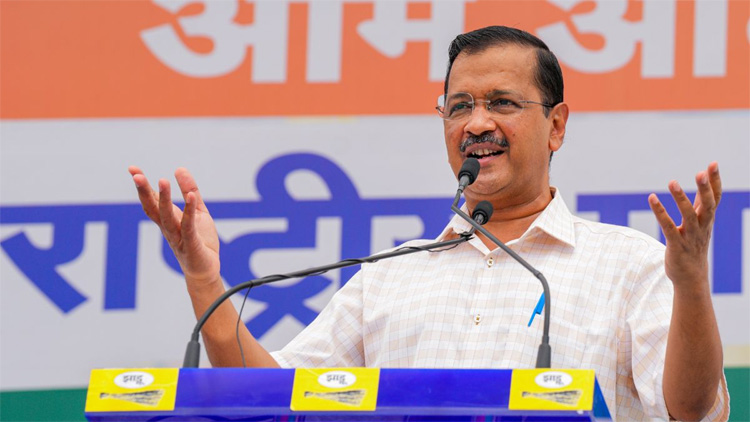On ordinance row, BJP says Kejriwal didn’t read Supreme Court verdict
BJP’s Amit Malviya said Delhi chief minister Arvind Kejriwal has not read the May 11 verdict of the Supreme Court on the Centre vs Delhi government case as the ordinance — at the centre of a massive political row — is in tune with the judgment.
“There is no reason for so much energy to be spent on the Ordinance brought in by the Central Govt with respect to Delhi. Had Arvind Kejriwal read the Supreme Court judgement, he would have known that the said Ordinance, to be later taken up as a Bill by the Parliament has its origin in the Constitution Bench (CB) Judgment itself,” Malviya tweeted.
On Friday, the Centre introduced the ordinance empowering the LG on services matters starting a fresh tussle between the Centre and the Delhi government as AAP announced that it would challenge the ordinance in the Supreme Court. Several opposition leaders including former J&K chief minister Omar Abdullah condemned the ordinance.
BJP said the ordinance was necessary accusing the Kejriwal government of intimidating officers after the Supreme Court verdict. According to the LG office, eight officers alleged “blatant harassment” by the Kejriwal government — two complaints received earlier and six after the Supreme Court verdict, reports said. Apart from services secretary Ashish More, chief secretary Naresh Kumar, special secretaries Kinny Singh, YVVJ Rajasekhar, and power secretary Shurbir Singh complained against the Kejriwal government. Rajasekjar was overseeing the case of Kejriwal’s residence renovation.
Amid the tussle, Malviya said the Supreme Court verdict made provision for a law to modify the executive power of the Lieutenant Governor. “The Constitution Bench judgment at Para 95 expressly mentions, ‘However, if Parliament enacts a law granting executive power on any subject which is within the domain of NCTD, the executive power of the Lieutenant Governor shall be modified to the extent, as provided in that law. Furthermore, under Section 49 of the GNCTD Act, the Lieutenant Governor and the Council of Ministers must comply with the particular directions issued by the President on specific occasions,” Malviya tweeted.

